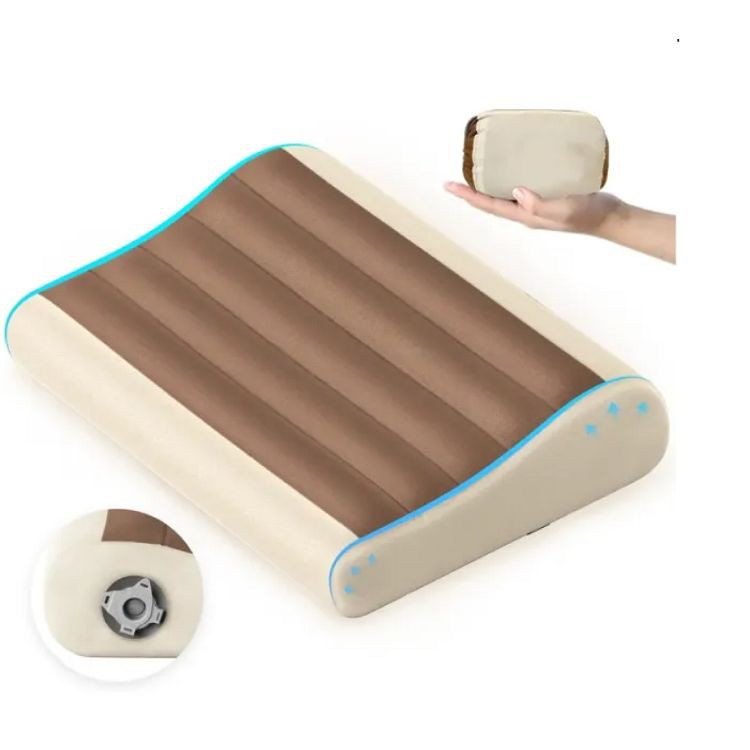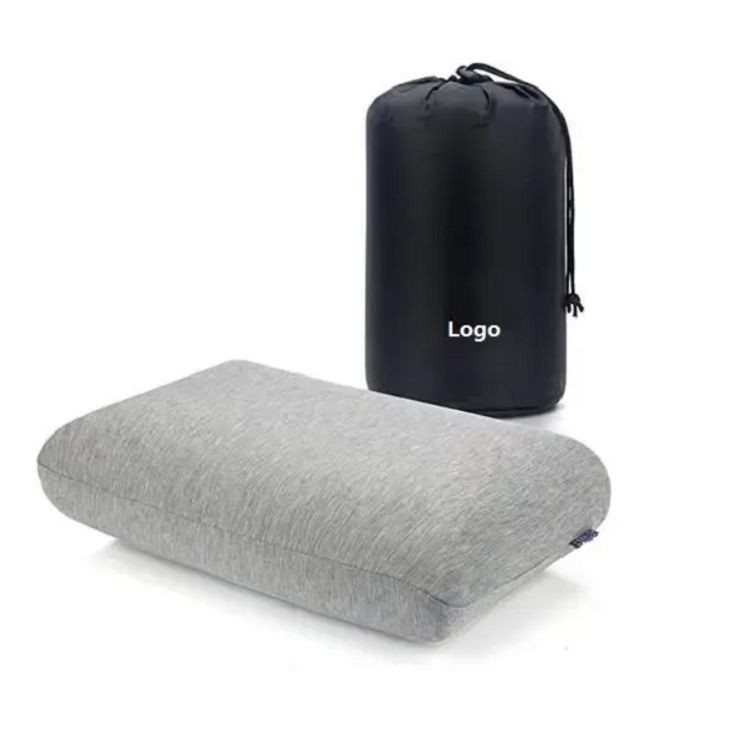How do I know if a camping pillow is hypoallergenic?
As a camping pillow supplier, I understand the importance of providing customers with products that meet their diverse needs, especially when it comes to health and comfort. One of the most common concerns among campers is whether a camping pillow is hypoallergenic. In this blog post, I'll share some insights on how to determine if a camping pillow is hypoallergenic, based on my experience in the industry.
Understanding Hypoallergenic Products
Before we dive into how to identify a hypoallergenic camping pillow, it's crucial to understand what "hypoallergenic" means. Hypoallergenic products are designed to minimize the risk of allergic reactions. However, it's important to note that the term "hypoallergenic" is not strictly regulated, and there's no universal standard for what qualifies a product as such. In general, a hypoallergenic camping pillow is less likely to cause an allergic reaction compared to other pillows.
Materials Matter
The materials used in a camping pillow play a significant role in determining its hypoallergenic properties. Here are some common materials and their potential impact on allergies:
Memory Foam
Memory foam is a popular choice for camping pillows due to its ability to conform to the shape of your head and neck, providing excellent support. High - quality memory foam is often hypoallergenic because it is resistant to dust mites, mold, and mildew. Look for memory foam pillows that are CertiPUR - US certified. This certification ensures that the foam is free from harmful chemicals such as formaldehyde, heavy metals, and phthalates, which can trigger allergic reactions. For example, our Hikenture Camping Pillow uses high - grade, CertiPUR - US certified memory foam, making it a great option for allergy - prone campers.
Down and Feathers
Down and feather pillows are known for their softness and warmth. However, they can be a problem for people with allergies. Feathers can harbor dust mites, and the proteins in down can cause allergic reactions in some individuals. If you're allergic to down or feathers, it's best to avoid pillows filled with these materials.
Synthetic Fill
Synthetic fills, such as polyester fiberfill, are often a good alternative for those with allergies. They are resistant to dust mites and mold, and they can be easily washed to remove any potential allergens. Our Compressible Camping Pillow uses a high - quality synthetic fill that provides both comfort and hypoallergenic benefits.
Pillow Covers
The pillow cover is another important factor. A removable, washable pillow cover made of natural fibers like cotton can help keep the pillow clean and reduce the risk of allergic reactions. Look for covers that are tightly woven, as this can prevent dust mites from penetrating the cover.
Certification and Testing
Certifications can be a reliable indicator of a camping pillow's hypoallergenic properties. In addition to the CertiPUR - US certification for memory foam, there are other certifications to look out for:
Oeko - Tex Standard 100
This certification ensures that the textile materials used in the pillow, including the cover, are free from harmful substances and meet strict environmental and safety standards. A pillow with this certification is less likely to cause skin irritation or allergic reactions.
Allergy - Tested
Some manufacturers conduct their own allergy testing on their products. Look for pillows that are labeled as "allergy - tested" or "suitable for allergy sufferers." While these labels are not as standardized as official certifications, they can still provide some assurance.
Customer Reviews
Customer reviews can be a valuable source of information when it comes to determining the hypoallergenic properties of a camping pillow. Look for reviews from customers who have allergies and see if they mention any allergic reactions or positive experiences with the pillow. Pay attention to comments about itching, sneezing, or other allergy - related symptoms. If a large number of allergy - prone customers have had a good experience with a particular pillow, it's likely to be hypoallergenic.
Consider Your Specific Allergies
Everyone's allergies are different. Some people are allergic to dust mites, while others may be sensitive to certain chemicals or materials. If you have specific allergies, it's important to consider these when choosing a camping pillow. For example, if you're allergic to latex, make sure the pillow does not contain any latex components.
Our Commitment as a Supplier
As a camping pillow supplier, we are committed to providing high - quality, hypoallergenic products. We carefully select the materials used in our pillows and ensure that they meet strict quality and safety standards. Our Lightweight Camping Pillow is designed with the comfort and health of our customers in mind. We understand that a good night's sleep is essential for an enjoyable camping experience, especially for those with allergies.


Contact Us for Procurement
If you're interested in purchasing our hypoallergenic camping pillows for your retail store, camping club, or other business needs, we'd love to hear from you. We offer competitive pricing, bulk discounts, and excellent customer service. Whether you're looking for a small quantity for a trial run or a large order for your business, we can accommodate your needs. Please reach out to us to start a procurement discussion.
References
- American Academy of Allergy, Asthma & Immunology. (n.d.). Understanding Allergies.
- CertiPUR - US. (n.d.). About CertiPUR - US.
- Oeko - Tex. (n.d.). Oeko - Tex Standard 100.
